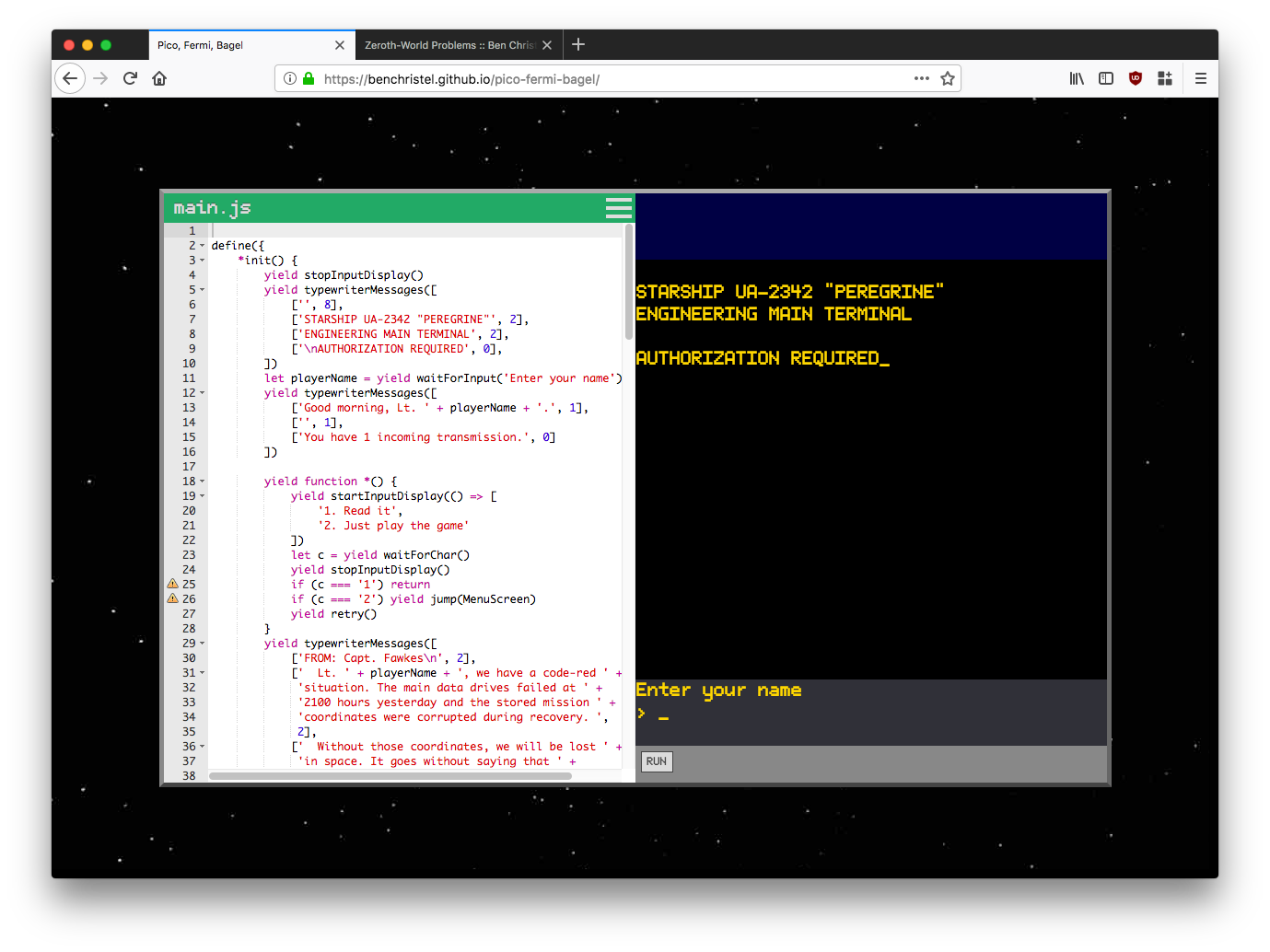Verse: Not Just for Poets
I just released the first tech demo of my browser-based programming environment Verse.

Why?
Verse’s goal is to allow people to program without being programmers. There are tons of tutorials and tools out there for people without CS degrees who are trying to become professional software developers. That’s awesome! I’m really glad those things exist. But despite all of the effort that people have dedicated to giving aspiring software engineers a leg up, the learning curve for becoming a JavaScript dev is still pretty frightening, and the mountain of Things To Learn is only getting higher.
But here’s the thing: when I started programming, I had no desire to be a professional programmer. I didn’t even know what that meant. But I still felt the thrill of making things work: of creating something I could see and interact with just by describing it to a computer in sufficiently precise terms. Coding is the act of thinking so hard and so deeply about something that it literally pops into existence. The first time you experience this, it is nothing short of astonishing. If you code, you learn in your gut that rational thought is a useful tool, that “true” and “false” are just as unambiguous and concrete as “working” and “broken”, because when you think things that make sense and are correct, your code works, and when you think things that are wrong or nonsense, it doesn’t.
That rational instinct shouldn’t be the sole property of professional computer programmers. It can and should be available to anyone with a computer in their house or their pocket. I also think that many people, if not most, have at least some small problems they could solve, or delights they could pursue, if only they had a platform for writing code and sharing it with others.
What is it?
At first glance, Verse seems reminiscent of something like JSFiddle, but it has a few important differences:
-
It’s intended to be a “real” development environment for building fairly complex applications. E.g. it facilitates TDD and lets you do futuristic things like organize your code into multiple files. Soon, you’ll even be able to download your code as a standalone HTML file which can be easily checked into Git and loaded back into the editor.
- It’s designed with offline use in mind; the editor’s code
is cached locally, so once you’ve visited
once, you can access it from anywhere, even without a network connection. Your app's code is saved locally as well. -
It comes with an opinionated framework that facilitates I/O, imperative programming using simulated threads, and Redux-like state management with runtime typechecking and automatic persistence.
- It doesn’t let you waste time messing with HTML and CSS. If you want a terminal-style app that takes textual input and logs textual output, it makes that really easy. If you want graphics, you have to use Canvas. But you’ll never have to debug an improperly-scoped CSS selector, or scratch your head over some weird HTML layout thing that only happens in Safari.
I’ll probably write more about its philosophy and implementation in the coming weeks. Stay tuned.